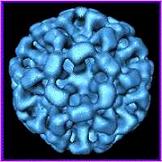Attempt to collect specimens as soon as possible after onset of illness or as directed by the Office of Infectious Disease Epidemiology (OIDE).
Tips for collecting a stool specimen:
- Collecting stool can be difficult. Try to wear enclosed gloves and ensure thorough hand washing upon completion.
- Place plastic wrap across the rim of the toilet, under the seat to collect stool specimen only (NO URINE). Transfer the stool to the clean, sealable container before taking to the laboratory. Plastic wrap can also be used to line
the diaper of an infant or toddler who is not yet using the toilet. A disposable, clean plastic
container, etc. (i.e. Ziploc container, butter container, etc.), can be used if kits cannot be obtained quickly.
-
Important: Write on the containers your (or your child's) full name, date of birth, and the date and time the sample was
collected. If this is not done, the lab cannot do the test, and you will have to repeat the stool collection.
-
Important: Do not use the collection containers with liquid inside of them, as the
preservative can inhibit Norovirus testing.
- Place fresh stool specimens in the enclosed, clean, dry containers.
- Keep refrigerated. Place bagged and sealed specimens on ice or with frozen refrigerant packs in an insulated box.
- Return specimen to Delaware Public Laboratory or State Service Center as directed by OIDE.
Bacterial/Stool/Urine Collection Kit.
Return to the Tests Performed page
Return to the Delaware Public Health Laboratory page
This page was last updated 4/2024
 Please note: Some of the files available on this page are in Adobe PDF format which requires Adobe Acrobat Reader. A free copy of Adobe Acrobat Reader can be downloaded directly from Adobe . If you are using an assistive technology unable to read Adobe PDF, please either view the corresponding text only version (if available) or visit Adobe's Accessibility Tools page.
Please note: Some of the files available on this page are in Adobe PDF format which requires Adobe Acrobat Reader. A free copy of Adobe Acrobat Reader can be downloaded directly from Adobe . If you are using an assistive technology unable to read Adobe PDF, please either view the corresponding text only version (if available) or visit Adobe's Accessibility Tools page.

![]() Please note: Some of the files available on this page are in Adobe PDF format which requires Adobe Acrobat Reader. A free copy of Adobe Acrobat Reader can be downloaded directly from Adobe . If you are using an assistive technology unable to read Adobe PDF, please either view the corresponding text only version (if available) or visit Adobe's Accessibility Tools page.
Please note: Some of the files available on this page are in Adobe PDF format which requires Adobe Acrobat Reader. A free copy of Adobe Acrobat Reader can be downloaded directly from Adobe . If you are using an assistive technology unable to read Adobe PDF, please either view the corresponding text only version (if available) or visit Adobe's Accessibility Tools page.